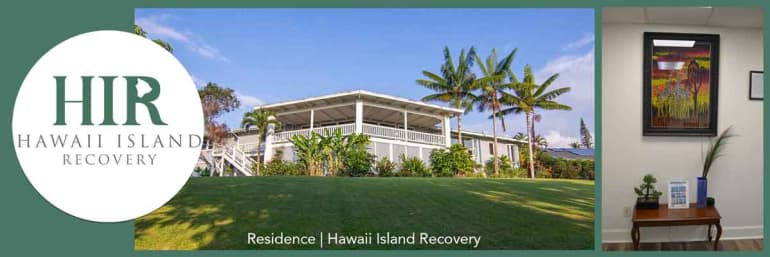Addiction recovery is a lifelong journey. At times, recovery will leave you feeling amazing and empowered. At other times, it may leave you feeling overwhelmed and anxious. It’s important to remember that there will be times in your recovery when you will face obstacles, frustrations, or difficulties in managing your sobriety.
Facing challenges that threaten sobriety can leave you feeling discouraged and hopeless. When these negative feelings begin to occur, it is essential to refocus and find ways to believe that your circumstances will improve. Developing and maintaining hope is key to helping you better your circumstances and stay sober.
Importance of Hope During Recovery
Hope is the belief and expectation that good things will occur. You can have hope for yourself, for others, and even for the world. Having hope for positive outcomes in all aspects of your life is possible.
It is important to remember that hope is not the same as daydreaming or wishful thinking. Hope helps you focus on tangible outcomes and future results.
Hope is a crucial element in your recovery process. The Substance Abuse and Mental Health Administrations (Samsha) rates hope as one of the “10 Guiding Principles of Recovery.”
Ways to Develop and Maintain Hope
Hope is always available. If you are having difficulty developing and maintaining hope, here are a few techniques that may help:
#1. Setting Goals
Goals can be viewed as your action plan to accessing hope. Setting goals allows you to focus on those things that are most important to you. Writing down your goals will help you develop and prioritize the actions you should take to accomplish each goal.
To begin to develop practical goals, write your goals down using the SMART criteria. These are goals that are: Specific, Measurable, Attainable, Realistic, and Time-based.
#2. Positive Affirmations
Affirmations are positive thoughts and self-talk designed to improve your mood, build confidence, and motivate you to keep moving forward. Affirmations will help replace self-deprecating thoughts with hopeful ones.
If you are in a place in your life where hope seems out of reach, using positive affirmations each day will help begin to change your mood and refocus negative thought patterns. Examples of affirming statements are: “I am successfully managing my sobriety,” “I am confident,” or “I will overcome this challenge.” Find statements that are motivating to you to start.
I am Successfully Managing My Sobriety
I am Confident
I will Overcome This Challenge
#3. Connect to a Higher Power
Many people find and maintain hope through their faith in something larger than themselves. Having faith and connecting to a higher power does not necessarily mean it is a religious undertaking.
If you do not have a strong connection with religion but still want to connect with something outside of yourself, you may be able to find connections via various forms of spirituality, science, philosophy, nature, or meditation. The key to this kind of connection is that it provides a positive impact on your life by bringing you peace, motivation, and purpose in your recovery.
#4. Practice Gratitude
A great way to maintain hope is by practicing gratitude. This is a simple task that will not take a lot of time. To begin, write a shortlist of things you are thankful for. This does not have to be a long or elaborate list — you can list simple items such as “thankful for nice weather” or “thankful that I maintained sobriety today.” Include anything that brings you a feeling of accomplishment, love, peace, or joy.
Become consistent and write your lists in a dedicated notebook or journal. Making this a daily process will allow you to see all of the things you have accomplished and the love and support that surrounds you. Also, by writing your thoughts down, you’ll be able to review them for inspiration and a sense of hope during challenging times.
#5. Make Self-Care a Priority
It is hard to feel hopeful when you are not in a good physical, mental, or emotional state. Practicing self-care and taking the time to focus on your own well-being is one way to help you develop and maintain hope.
Self-care activities could include exercising, eating healthy, or watching a movie. Take the time to participate in actives that you enjoy or that will improve your overall health.

Finding inspiration through hope is key in helping addicts find sobriety. Hope provides the motivation for those new in recovery to push forward despite the challenges.
More infoHow Hawaii Island Recovery Can Help
At Hawaii Island Recovery, we believe hope and recovery are available to everyone. Our programming offers individualized care that addresses the causes of substance abuse. We use evidence-based approaches that foster lasting sobriety and complement them with holistic health services to form a well-rounded treatment plan that heals the whole person — mind, body, and spirit.

Addiction recovery is a lifelong journey filled with both good and challenging times. Facing challenges and obstacles in recovery could lead to feelings of discouragement or hopelessness. However, it is essential to find ways to develop and maintain hope to combat these negative feelings. Hope is a crucial element in recovery success and is the belief and expectation that good things will happen. Setting goals, the use of positive affirmations, connecting to a higher power, and practicing gratitude are examples of how you can cultivate hope. At Hawaii Island Recovery, we are committed to helping individuals heal their minds, bodies, and spirits with customized plans that address their specific needs. If you would like more information on the importance of hope, ways to cultivate it, or how our services can help, please call Hawaii Island Recovery today at (866) 390-5070. We are always available to help you or your loved ones.
Get Help Today!
If you or a loved one need help, call Hawaii Island Recovery toll-free right now.
866-390-5070 Hawaii Island Recovery
Hawaii Island Recovery 










